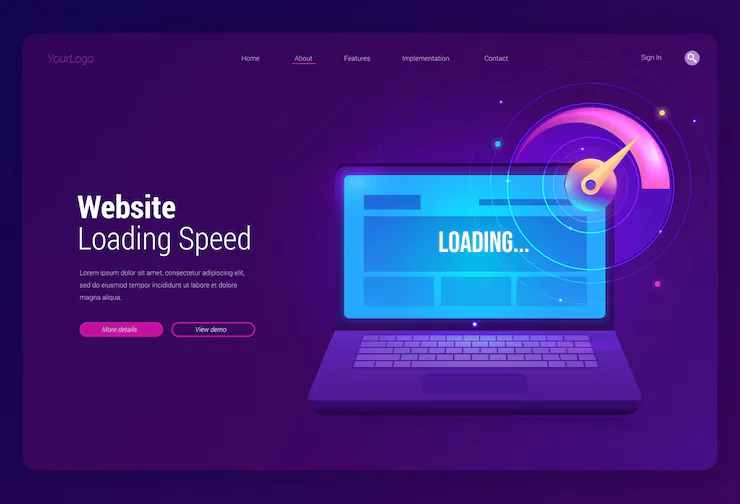Data Integrity Made Simple: Ensuring Accuracy through Life Sciences Compliance Software

Understanding Data Integrity in Life Sciences
Data integrity is a pillar of credibility in the life sciences sector. It ensures that the information used in research, drug development, and clinical trials remains complete, consistent, and accurate from inception to reporting.
Regulatory entities, notably the FDA, mandate rigorous standards because the stakes are supremely high lapses in data integrity can lead to drastic outcomes like the withdrawal of medical products from the market and serious implications for public health. For this reason, incorporating life sciences software solutions is no longer an added benefit but a necessity for companies aiming to maintain compliance and ensure data reliability.
Beyond regulatory compliance demands, implementing strong data integrity practices ensures stakeholders can fully trust research findings and product efficacy.
Inaccurate data can mislead decision-making processes, waste resources, and, most disturbingly, put patients’ lives at risk. Thus, reinforcing data integrity with resilient software solutions becomes a principal component of the overall strategy for businesses in the life sciences industry.
Key Takeaways
- Understanding the impact of data integrity on the life sciences industry.
- Examining the key features and benefits of using life sciences compliance software.
- Looking ahead at the trends shaping the future of data integrity and compliance technologies.
Life Sciences Compliance Software: A Tool for Assurance
The deployment of specialized compliance software is at the frontier of combating data integrity issues. Such a system is engineered to safeguard life sciences companies against the risks of noncompliance, reduce errors, and instill a streamlined, transparent approach to data management.
The defining features of an efficient compliance system encompass secure audit trails, robust access control measures, and stringent data validation protocols, all harmonizing to preserve and enhance the quality of data.
In life sciences, these systems offer more than mere regulatory adherence; they can redefine operational workflows, enhance data security, and bolster productivity.
With the implementation of compliance software, organizations can witness a tangible shift in their ability to manage vast amounts of sensitive and critical data efficiently and securely. Numerous case studies from across the globe offer success stories that testify to the transformative power of dedicated compliance software in various life sciences settings.
Navigating Complex Regulations with Precision
Life sciences companies are required to navigate a labyrinth of regulatory requirements, such as the 21 CFR Part 11, which sets the criteria for electronic records and electronic signatures in the United States, and Good Laboratory Practice (GLP) standards, which guide the conduct of non-clinical laboratory studies that support or are intended to support applications for research or marketing permits.
Adherence to such regulations is more than a legal obligation; it is a testament to a company’s commitment to quality and safety. A sound strategy for managing these complex regulations is integral to a company’s survival and success.
Taking a proactive stance on compliance involves continuous monitoring of the regulatory landscape and adopting purpose-built life sciences software to satisfy these intricate standards.
Data Management and Control Strategies
Addressing data integrity starts with a robust framework of data governance. Within this framework, automated controls represent critical checkpoints that safeguard the entire data lifecycle—ensuring it remains intact and unaltered.
This level of control is essential to prevent unauthorized modifications that can lead to noncompliance or compromise data quality. Furthermore, a comprehensive audit trail system logs all interactions with the data, offering critical insights into its history and verifying its integrity.
Controlling user access is paramount in maintaining data integrity. Life sciences companies can protect sensitive information from unauthorized access by implementing systems that specify user roles and grant permissions based on those roles. A systematic approach to user access management safeguards data and establishes a structured environment where data integrity is deeply ingrained in all processes.
Adopting a Culture of Compliance and Quality
While software plays a significant role in ensuring data integrity, the overarching organizational culture is what truly underpins ongoing compliance and quality.
A culture that values high standards encourages employees to take ownership of the compliance process. It fosters an environment where high-quality data management isn’t just a regulatory requirement but a core aspect of the organization’s ethos.
Empowerment through education is vital to cultivating this culture. Through dedicated training programs, employees become acquainted with the complexities of data management and the significance of their role within it. This spurs a continuous improvement mindset, encouraging the organization to aspire to higher data integrity while considering evolving regulatory requirements.
Software Validation: A Critical Step for Compliance
Software validation is an essential process that life sciences companies must pay attention to. It involves a detailed assessment that confirms the software is functioning as expected and meeting all specified requirements.
The validation confirms compliance with regulatory standards and ensures that the software will consistently produce precise, reliable data. Stringent testing, as part of software validation, helps uncover potential issues, ensuring that the system adheres to the highest levels of data integrity and regulatory compliance.
Integrating Compliance Software with Existing Systems
Moving to a new compliance software system is often about integrating existing systems rather than starting from scratch. Successful integration maintains the value of past investments while bolstering new capabilities.
A well-executed integration strategy involves careful data migration, ensuring that the integrity of the information is upheld and the continuity of operations is not disturbed.
To ensure a seamless transition, the new software’s compatibility with existing infrastructure must be a focal point. This compatibility promotes a unified operational environment, minimizes the risk of data inconsistencies, and allows for future-proofing legacy systems, ultimately enriching the value of established processes.
Future of Data Integrity: Trends and Predictions
Remarkable technological improvements are shaping the destiny of data integrity in existence sciences. Innovations including Blockchain have delivered new possibilities for immutable and traceable document-keeping. At the equal time, Artificial Intelligence (AI) and Machine Learning (ML) strategies are being harnessed to reinforce security features and compliance tracking.
These ahead-thinking technologies present a innovative landscape where statistics integrity is greater secure and increasingly more actionable, guiding the next wave of improvement inside the existence sciences industry.
The implications of these evolving technology on regulatory frameworks can’t be understated, as they compel a reevaluation of cutting-edge requirements and practices. It is incumbent upon life sciences corporations to live at the vanguard of these advances, adapting dynamically to harness their potential and meet the future needs of records integrity and regulatory compliance head-on.
Conclusion: The Enduring Value of Data Integrity
The quest for impeccable statistics integrity is a adventure that never surely ends for existence sciences groups. It is a commitment that resonates via every aspect of operations, speakme volumes about a organization’s determination to protection, satisfactory, and ethical duty. By imposing specialised compliance software, agencies can mitigate the dangers associated with facts breaches and craft a legacy of accept as true with and reliability.
Embracing those gear, existence sciences corporations anchor themselves in a paradigm in which statistics integrity turns into the cornerstone of their achievement, fostering an environment that consistently meets the highest standards of accuracy and high-quality.

How using an SIP Calculator daily helps in micro-investing

Access Any Business Platform Worldwide with iTop VPN

How Altify's Enablement Solutions Help Sales Teams Close Deals Faster

AI in Marketing Is No Longer a Buzzword — It’s the Strategy

Srinivasa Rao Challa Champions AI-Powered Financial Systems for a Smarter, Safer Economy

Why Website Speed Matters More Than Ever: The Science Behind Faster Load Times

What You Need to Know About Driver Update Online in Minutes

Add Border to Photo Instantly and Elevate Your Visuals Online








